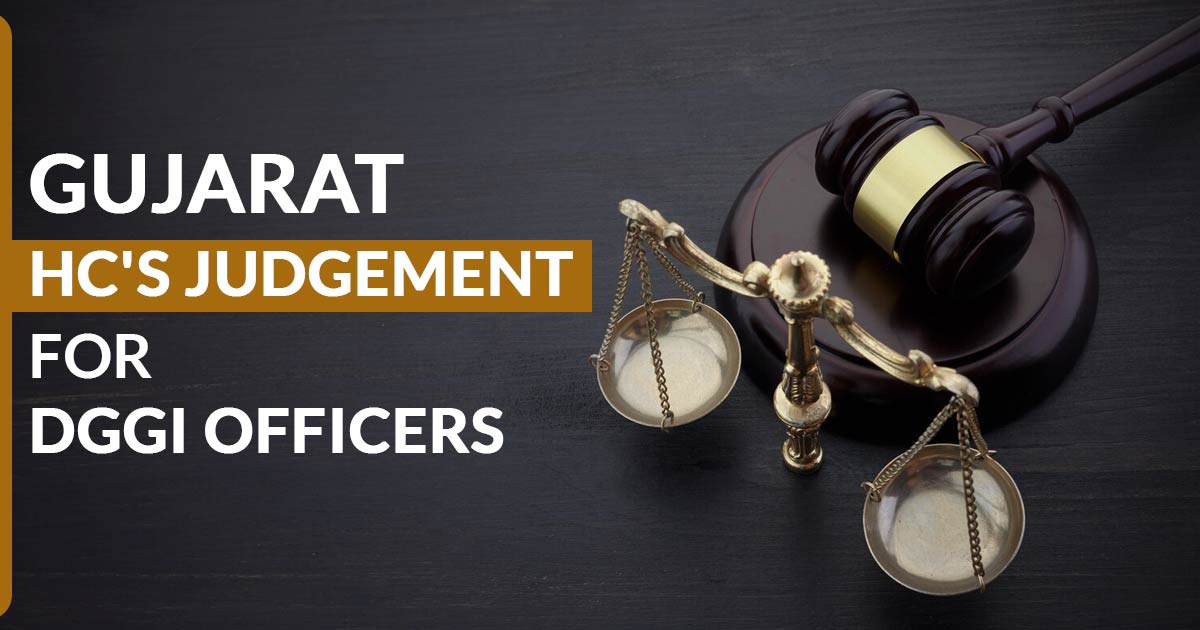
In a recent judgement delivered by the honourable Gujarat High Court, it is held that the Directorate General of Goods and Services Tax Intelligence (DGGI) holds the power to issue summons considering the provisions of the GST Act, 2017 and the relevant circulars that are issued by the Central Board of Indirect Taxes 
Here, in this case, the petitioner is Yasho Industries Ltd. that is a public limited company and the learned counsel is Advocate Mr Abhishek Rastogi. The petitioner possesses an Advance Authorization License that is granted to it as per the scheme that is set out in the Chapter-IV (AA Scheme) of the Foreign Trade Policy 2015-2020.
Why the Petitioner Approached the Honourable Gujarat HC?
The petitioner prayed in the honourable Gujarat High Court that a directive should be issued to the GST Department to give back Rs 3 crore that has been paid by him through form bearing number GST DRC-03 
The learned counsel Mr Abhishek Rastogi put forth a contention that the aforesaid assignment of function has to be performed by issuing of notification and not by issuing of Circular considering the provision of section 167 of the CGST Act. The aforesaid function is related to the delegacy of the powers by the Commissioner that is exercisable by any authority or concerned officer as may be mentioned in the Notification.
As per the learned counsel, the official of the Directorate General of Goods and Services Tax Intelligence (DGGI) has the designation of a Senior Intelligence Officer, and consequently, his appointment under the ambit of the CGST Act could be unearthed to the Notification bearing date 1.7.2017 and so, respondent has been appointed as a Central Tax Officer and stands in the rank of the Superintendent under CGST Act.
The division bench of Justice AC Joshi and Justice Bela M Trivedi made an observation that section 2(91) is concerned with the proper officer — in relation to any function that has to be performed as per the CGST Act—to be the Commissioner or the office bearer of the Central Tax who has been given the responsibility of the said function by the Commissioner in the Board.
“Here the Board means the Central Board of Indirect Taxes and Customs” as defined in Section 2(16) of the CGST Act. Vide the Circular dated 5.7.2017 the said Board namely the Central Board of Excise and Customs in the exercise of the powers conferred by Section 2(91) of the CGST Act read with Section 20 of the IGST Act and subject to Section 5(2) of the CGST Act has assigned the officers the functions as that of proper officers in relation to the various sections of the CGST Act and the Rules made thereunder, and as such the Superintendent of Central Tax has been assigned the function of Section 70(1) of the CGST Act.”
“Thus, there being no delegation of powers by the Commissioner, the provisions contained in Section 167 of the CGST Act could not be said to have been attracted, nor was there any necessity to issue Notification as sought to be submitted by Mr.Rastogi. There could not be any disagreement to the proposition of law laid down by the Supreme Court in the case of Canon India Pvt. Limited (supra) relied upon by the learned Advocate Mr.Rastogi that when a statute directs that the things to be done in a certain way, it must be done in that way alone, the Court said.”
As a consequence, the honourable court rejected the plea of the petitioner. Further, The court added that the question of releasing notification for the delegacy of the powers by the Commissioner, which is contemplated under section 167 of the CGST Act, does not arise. Adding further the court said that the learned counsel seems to have misread the powers of the board. Consequently, the court doesn’t find any substance in the submission of the learned counsel that the respondent was not a proper officer as per the definition that is available in section 2(91) of the CGST Act.